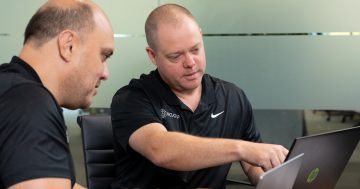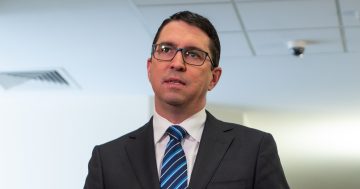 An officer in the Department of State Development, Tourism and Innovation, Dan Jarvis (pictured), who is profoundly deaf, has shared his experiences of working flexibly during the COVID-19 pandemic.
An officer in the Department of State Development, Tourism and Innovation, Dan Jarvis (pictured), who is profoundly deaf, has shared his experiences of working flexibly during the COVID-19 pandemic.
A Principal HR Consultant with the Department, Mr Jarvis wears a cochlear implant and a hearing aid to help him communicate. He says working flexibly has given him the opportunity to have regular meetings with his manager and colleagues, and concentrate on complex and urgent tasks with minimal interruptions.
“I also found it effective to have confidential discussions with client groups and achieve resolutions over the telephone or via Microsoft Teams,” Mr Jarvis said.
“Initially, I worked with my Department’s IT team to ensure closed captions were available on my work device, including Microsoft Teams, and I provided accessories to set up my cochlear implant, allowing me to communicate on various platforms.”
He said having the technology allowed him to continue to provide HR strategic and operational advice to his clients’ management teams and business groups, and in turn delivering on business outcomes for his own team.
His best advice on working remotely was to think about “how you can make this work from an individual, team and Departmental perspective”.
“Consider if you need access to systems and determine if it would be effective to complete those tasks flexibly; ensure you check in with your colleagues and manager for your mental health wellbeing,” Mr Jarvis said.
“Remember to take scheduled breaks and get a breath of fresh air regularly by checking your letterbox, talk to friends and family, or go for a run or walk.”
He said working alone for a long period of time could have an impact on mental health and wellbeing, so it was important to reach out if we feel the need to.
“My philosophy to working flexibly is to work smarter, not harder,” Mr Jarvis said.











